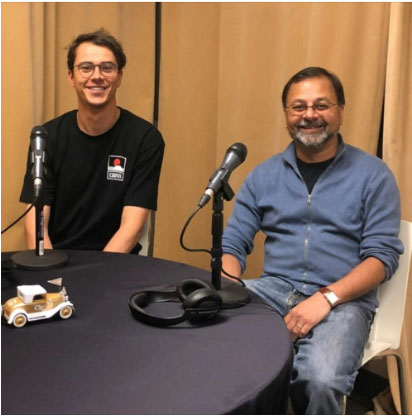Talk of the metaverse can easily generate strong emotions. From virtual concerts held in Fortnite to celebrities purchasing expensive virtual real estate, it can be easy to get lost in the headline-grabbing elements of what seems like an ever-growing virtual world.
As metaverse technology continues to develop, much of the focus of recent debate has centered around the value and ethics of creating an alternate, virtual world where humans can live in a reality separate to their own.
While technological development in recent years has made these experiences ever more powerful, recent developments in the metaverse are nothing new. The term itself can be traced back to Stephenson’s 1992 novel Snow Crash. The novel foresaw the creation of a virtual reality where some humans would choose to spend all their waking hours within the metaverse, where they could interact with avatars created by other humans.
Beyond works of fiction, the virtual reality world has continued to expand with the development of supporting hardware and software over the past two decades. Virtual reality platform Second Life launched in 2003, seeking to bring gamers together in a persistent world where they could interact with one another. Fast forward to 2022, and a plethora of metaverse gaming environments and supporting technologies exist today, from Roblox to Meta’s Quest headsets.
However, for Deven Desai, associate professor of Law and Ethics at the Georgia Tech Scheller College of Business, the focus on the consumer elements of the metaverse misses the most exciting aspects of these technological developments.
Desai recognizes that the ability to simulate real-world experiences has enormous business and social potential to create better outcomes in the real world, from more efficiently training airline pilots to giving medical surgeons better aspects to training.
“There was a study some few years ago for surgeons where they had a very reactive robot and those on the simulator there simply got more time practicing compared to those who didn’t", Desai said. “Imagine better training modules with the hands-on aspect. The ability to get in there for 15 minutes and really play with something in a virtual space that's much closer to a real space, that seems to be a potential that people should pay attention to."
The potential industrial applications of metaverse technology are not only limited to training either. Technology is already coming to the fore that is providing companies with much greater flexibility to prototype and iterate when it comes to large construction or real-estate projects. Students at the Scheller College of Business are also currently exploring ways to apply metaverse-type technologies to enable more efficient farming and agricultural practices.
“If you can virtually create, in a robust way, a model and test it, then the iteration goes through the roof,” Desai said. “That’s much closer to a really exciting development, where we're getting that cycle where the ratchet goes faster and faster and the cost is actually lower. And as a result the quality of product each time is better by an exponential factor better. So it’s those intersections that I think are thoroughly exciting.”

